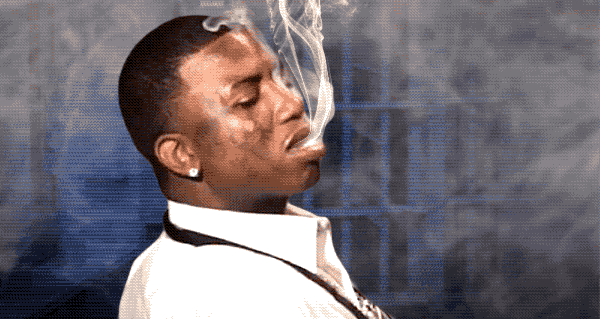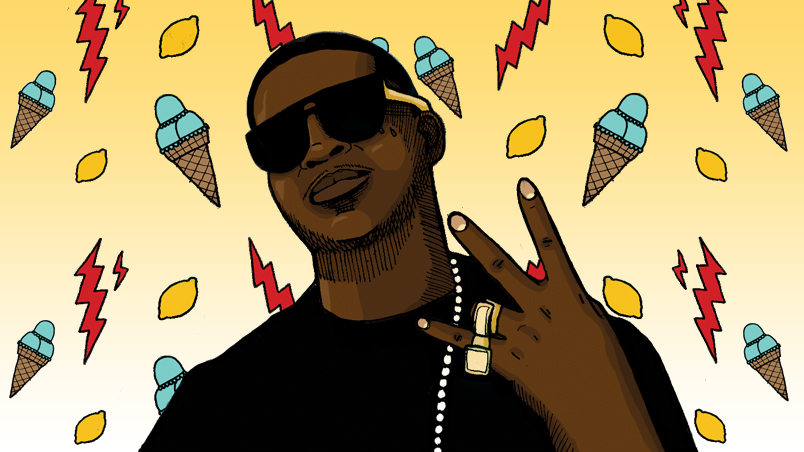The internet lit up late last week with a flurry of hashtags that have echoed persistently for years. Two simple words strung adjacent — #FreeGucci — created a unified call for one of Hip Hop’s most enigmatic and influential figures to find his way out of prison and back into the adoring grasp of his fans.
For the perpetually prolific “Guwop,” legally known as Radric Davis, trouble with the law was not an entirely new issue, but 2013 escalated quickly with an inundation of parole violations, assault charges and eventually, two counts of firearm possession, ultimately resulting in a guilty plea. The plea, while carrying mandatory jail time, helped to offset the Federal Court’s potential charge, with what could have been a maximum sentence of 20 years.
Gucci’s criminal record can actually be traced back to as early as 2001, which made it all that much more cathartic when last week he was released several months early from an initial September release date after a motion to expedite his sentence was approved.
It’s important to remember not all those sentenced to a stint behind bars see their way to an abbreviated sentence in any respect. Just see the recent conviction of a member of Bobby Shmurda’s GS9 crew for an example of a 98 year-plus sentence; essentially a life sentence delivered under a different moniker. For Guwop, his firearm possession charges catalyzed a prison sentence of only a few years, but for the rap community at large, the void was evident and could only be filled by frequenting an onslaught of mixtapes while reciting the practically religious call of “It’s Gucci!” out of sheer respect. Of course, the #FreeGucci slogan also helped us through some pretty tough times.
Then, on May 26, the Hip Hop community rejoiced when the Atlanta rapper was suddenly released from prison. We could all breathe a sigh of collective relief, knowing that Gucci was finally free. But perhaps the most amazing part of the saga is that despite substantial prison time, Gucci Mane was able to muster an incredibly expansive catalog even from behind bars.
As comprehensively detailed by Pigeons & Planes, Gucci managed to curate an ongoing stream of proper mixtape and album releases during his prison stay by developing an ongoing dialogue with his engineer and trusted confidant Sean Paine. Together, they communicated as frequently as possible to ensure that the legacy didn’t lose any momentum. And if anything, they coaxed both the myth and the music to grow even further. They went from daily phone calls, to weekly calls and finally correspondence online via “Corrlinks,” a communication network designed to help incarcerated individuals connect with their families and loved ones, in order to curate and schedule the continual release of new music. This communication proved key to keeping the #FreeGuci ethos not just alive, but thriving during the intensive prison bid.
Gucci was able to release King Gucci, alongside a comprehensive multi-part project: Breakfast, Lunch, Dinner, and Dessert, and Trap House 5, as well as a dizzying cascade of additional releases, cementing his image as a relentlessly prolific artist that couldn’t be stopped even from the oppressive confines of his prison cell. Even a glimpse at Gucci’s comprehensive discography as published from prison is a bit puzzling, as it displays a man that’s ultimately published more music from behind prison bars than most artists manage to output under creatively-conducive circumstances.

Again, Gucci’s intimate working relationship with Sean Paine is what truly allowed for this level of fortitude and working perseverance to continue in any capacity. When interviewed in 2015, Paine went on to detail how they were able to facilitate their releases:
“I talk to Gucci every day, all the time. We communicate via email. At first, he could call me. So I would be playing the songs for him. He’d call me, and I’d be wired to my hard drive at my house, and I’d play his songs for him. And he’d be like, “Yeah pick that one. Keep going, keep going.” He’ll pick what he wants for his CDs. And then he got to the point where he couldn’t call no more. So he just kinda trusted me to do it.”
And while plenty of music critics might actually admonish this type of release style (we’re talking about a catalog that might make Lil B look timid about music releases) this approach proved to be an incredibly adept strategy for staying relevant even while out of sight. Sure, there were tiny missteps along the way. Many of the released songs don’t hold much pop appeal, and yes, Gucci did wind up making an actual LinkedIn account to vicariously network within the film industry, but who’s to say that Gucci’s not a 21st Century trailblazer, blurring the lines between the physical and digital realms with an almost ingenious effectiveness? And true to form, Gucci is already back at it, having just released the Mike Will Made It produced “First Day Out Tha Feds,” since being released. The song has now accrued over two million streams online.
While a vast majority of the songs released while Gucci was incarcerated seemed to have been backlogged and re-released from the dusty inner-workings of old hard drives, the fact that listeners continued to receive new content over the course of a significant incarceration speaks to the intensively resilient dedication of both Gucci and Sean Paine. Of course, none of it would be possible without a diehard listenership that remained loyal no matter what. Which is made all that much easier now that the “Free Gucci” slogan can finally be read in reverse: Gucci’s Free.
Original Illustration by oli Hb
Visuals by Richie Williamson


